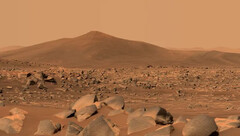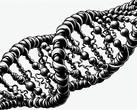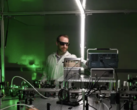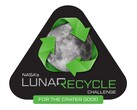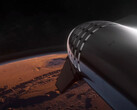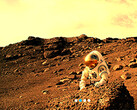Mars, which once had flowing rivers and a thick atmosphere, now offers a pretty harsh environment for any colonisation plans. The planet's smaller size caused its core to cool off fast, which caused Mars to lose its magnetic field and most of its atmosphere. What’s left behind is a dry, barren place loaded with toxic perchlorates, making farming on Mars a real headache.
NASA’s Artemis program is working towards setting up a human presence on Mars that doesn’t depend on Earth, and Elon Musk with SpaceX has his sights on building a city of a million people there in the next twenty years. But there’s a big problem standing in the way: those pesky perchlorates spread all over Martian soil.
Perchlorates are toxic salts made up of chlorine and oxygen, and they’re found on Mars at concentrations 1,000,000 times higher than on Earth. This contamination means the Martian regolith—the loose stuff covering the surface like sand, dust, and rock—won’t let plants grow. Unlike Earth’s soil, which is packed with organic material, Martian dirt just doesn’t have what plants need to thrive.
Rafael Loureiro, a plant stress expert from Winston-Salem State University, points out that there’s no way around the perchlorate issue if humans plan to farm on Mars. Sure, hydroponics can feed small crews for a while, but it’s not practical if the population starts growing. The only real long-term fix is making the Martian soil suitable for agriculture.
Researchers are exploring a few ways to clear perchlorates from Martian soil:
- Thermal decomposition: Heat the soil to 750°F, though this requires lots of power—maybe from nuclear reactors.
- Washing: Use tons of water to rinse the perchlorates, but since water is pretty scarce on Mars, this method’s not ideal.
- Microbial remediation: Microorganisms break down perchlorates and turn the soil into something plants can actually grow in.
Microbial remediation looks the most promising for both Mars and Earth. In fact, NASA and the National Science Foundation are already funding research on this idea, hoping it might help on Mars and restore damaged land on Earth.
Anca Delgado, a microbiologist from Arizona State University’s Biodesign Institute, is leading a team focused on this. Her research builds on earlier work cleaning up toxic chemicals on Earth, like those used in dry cleaning or metal degreasing.
Delgado’s team is working on growing microbes that can survive on perchlorates, breaking them down into harmless stuff. This process does more than just remove toxins—it also helps build up soil organic matter, which is essential for healthy plant growth.
The project, backed by $1.9 million from the NSF and NASA, brings together Arizona State University, the University of Florida, and the Florida Institute of Technology. Each school handles a different part of the puzzle—from reducing perchlorates to building organic matter and testing plant growth in treated Martian soil.
Since scientists don’t have any actual Martian soil to work with, they’re using Mars Global Simulant (MGS-1), which mimics the properties of soil samples analyzed by the Curiosity rover.
As the race to get humans on Mars continues, solving the perchlorate problem is key to making sustainable farming possible there. The breakthroughs from this research might even help us fix some of Earth’s toughest agricultural challenges, transforming barren, polluted land into productive farmland.
Source(s)
MITTechnologyReview (in English)


